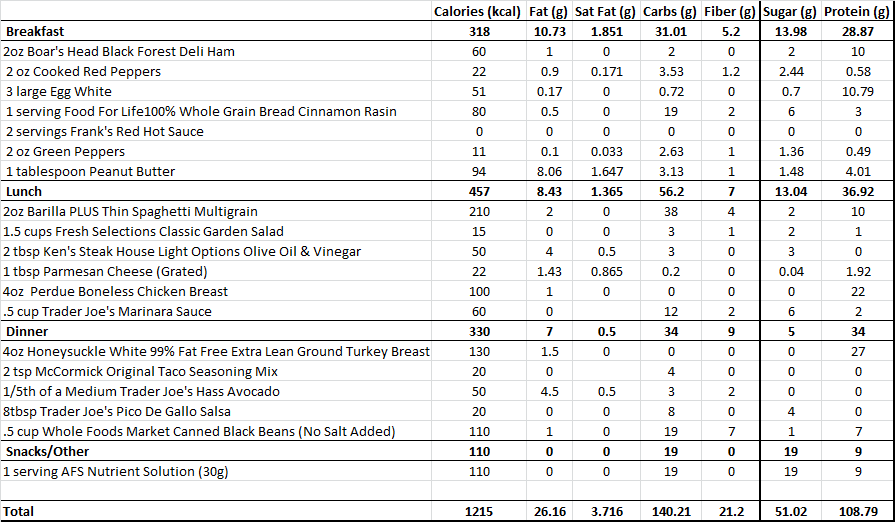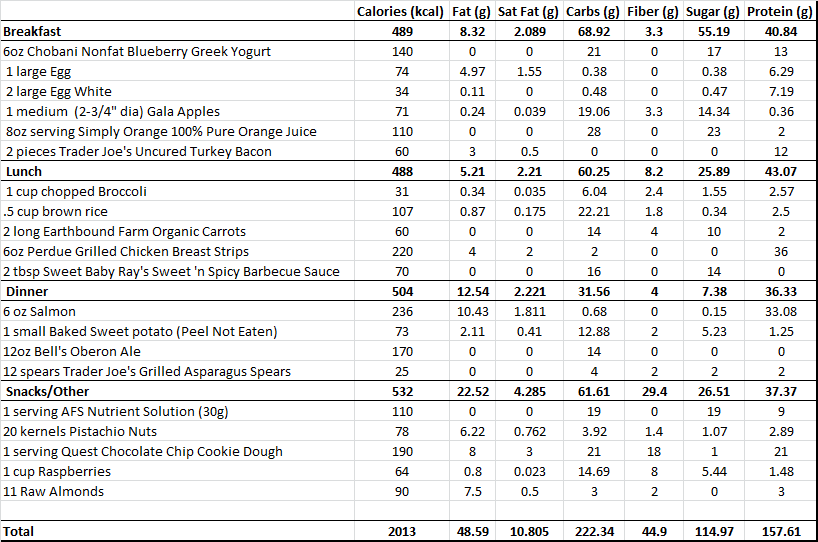How to Increase your Protein Intake
 AFS Education
Administrator, Moderator, Practitioner admin
AFS Education
Administrator, Moderator, Practitioner admin
Wait, what? Increase protein intake? I thought Americans ate too much protein? Well you’re right, kind of. Americans eat too much of everything: fat, protein, and carbohydrate. However, once someone is in a calorie deficit, protein is the one nutrient that’s always under consumed, especially after they start logging in a calorie deficit. In fact, about 80% of the time I have to urge the clients I work with to increase their protein intake. Here are a few ideas on how to increase your protein intake!
Importance of Protein
Muscle Growth and Repair:
Muscle growth and repair is critical for the improvement and/or maintenance of health. What does lean mass do besides look good? It optimizes metabolism, stabilizes joints to reduce risk of injury, helps regulate blood sugar, and allows for maintenance of independence as you age. If you don’t get enough protein in your diet, your body will break down muscle tissue to supply amino acids for more vital functions.
Antibody Formation:
Ever wonder what fights off that infection? Antibodies are constructed of protein and help keep you healthy!
Enzymes:
Enzymes are made of protein and are used in the body to speed up chemical reactions. Examples: lactase and pepsin. Lactase breaks down the sugar lactose found in milk. Pepsin is a digestive enzyme that breaks down proteins in food.
Hormones:
Ever hear of growth hormone and insulin? Both are made of protein.
Structural Support:
Ligaments and tendons need protein to maintain their integrity.
Blood:
Hemoglobin is a transport protein that carries oxygen in the blood — pretty critical.
How Much?
Appropriate intake for exercising individuals is 60-90% of body weight in grams of protein per day. Consuming more than this range hasn’t been shown to be detrimental to health. In addition, exceeding this range MAY be beneficial to some individuals. Whether exceeding this range is beneficial depends on numerous factors, such as your goals, quality of protein, meal frequency, number of meals, and age.
Sources of Protein
To find food sources high in protein, look for at least 1g of protein per 10-15 calories or 3-4 grams of protein for every gram of fat. Here’s a list of high-quality protein rich foods:
Skim milk
Low fat cottage cheese
Low fat cheese
Ground sirloin
Fish
93/7 or leaner ground turkey/chicken
Tofu
Greek yogurt
Beans
Jerky
Eggs
Protein Bars / Shakes
If you need recommendations just ask your fitness practitioner!
Protein Myths
Unfortunately, a lot of people are hesitant to increase their protein intake due to the misinformation about protein. The two most common myths about protein are:
1. Impaired Kidney Function:
· The basis for this myth is from a study released in the early 80s that examined the effects of high protein intake on animals with kidney disease. Since these animals already had kidney disease, this study cannot be used to prove that high protein intake causes kidney disease in healthy individuals. Current research in healthy humans suggests high protein diets may mitigate major risk factors for chronic kidney disease, such as hypertension, diabetes, obesity and metabolic syndrome.
· Also, there are no statistically significant differences in age, sex, weight, and kidney function between non-vegetarians and vegetarians (a group that has lower protein intake). Both groups share the same rate of kidney function deterioration with aging.
2. Osteoporosis:
· Past research linked high protein diets to high acid levels in the urine and assumed that this would cause leaching of calcium from the bones to buffer the acidity. These studies were limited by small sample sizes, methodological errors, and the use of high doses of purified forms of protein. It’s since been shown that the calcium and phosphate content of protein rich foods and supplements negate this effect. It has also been shown that the calcium used to reduce the acidity in the urine is taken from the intestines and not bone.
Sample High Protein Diets:
Conclusion
While many people associate protein exclusively with muscle growth, our bodies actually use protein for a variety of vital functions. High protein diets haven’t been shown to cause any health problems in healthy humans. Increasing protein intake, especially for active individuals, can thus be a very health-promoting step to take with your nutrition.




